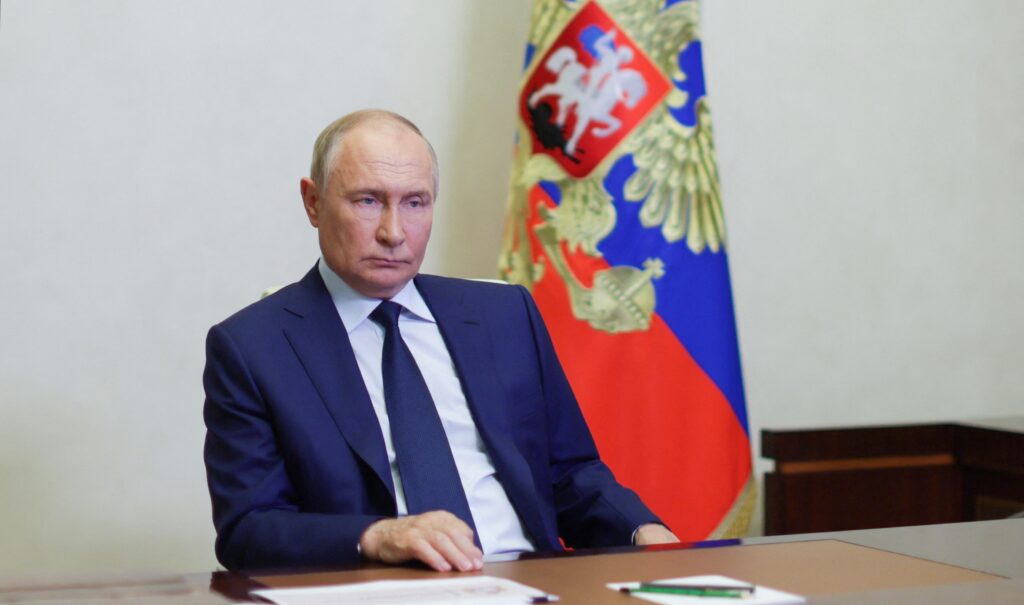Brussels – Shadow oil tankers, banks, aluminum imports: the EU launches a fresh sanctions package against Russia as a response to the aggression on Ukraine. An announced package that the EU Council approved, as scheduled, in the third year since the outbreak of war. The EU High Representative for Foreign and Security Policy, Kaja Kallas, is satisfied: “With talks underway to end Russia’s aggression, we must put Ukraine in the strongest possible position. Sanctions provide leverage.”
Among the main restrictions, the package includes a phased ban on importing certain aluminum products. It blocks 73 oil tankers of the so-called “shadow fleet” used by Russia to export sanctioned oil by circumventing European restrictions. Also hit are 53 companies, which end up on the blacklist of those helping the Kremlin in its aggression. It acts against those who export dual-use goods and technologies as well as goods and technologies that could contribute to the technological improvement of Russia’s defense and security sector. One-third of these entities are Russian, while the others are located in third countries (China, including Hong Kong, India, Kazakhstan, Singapore, the United Arab Emirates, and Uzbekistan) and have been involved in the circumvention of trade restrictions or engaged in providing needed sensitive items.

The squeeze on banks and media
Most importantly, for the first time, the European Union is imposing a transaction ban on credit or financial institutions established outside Russia that use the ‘financial message transfer system’ (SPFS) of the Central Bank of Russia. SPFS is a specialized financial messaging service developed by the Central Bank of Russia to neutralize the effect of restrictive measures. The Council decided to extend the prohibition on the provision of specialized financial messaging services to 13 regional banks considered to be important for the Russian financial and banking systems.
The Council also blacked out eight newspapers accused of promoting Kremlin propaganda. They are EADaily / Eurasia Daily, Fondsk, Lenta, NewsFront, RuBaltic, SouthFront, Strategic Culture Foundation, and Krasnaya Zvezda / Tvzvezda.
Energy also hit
The package agreed upon today imposes additional restrictions on exports of goods and technologies, particularly software related to oil and gas exploration, to further restrict Russia’s exploration and production capacities. Additionally, it extends the prohibition to provide goods, technology, and services for the completion of crude oil projects in Russia, such as the Vostok oil one, similarly to the completion of LNG projects currently in place.
The Council is also banning the provision of temporary storage for Russian crude oil and petroleum products within the EU, independently from the purchase price of the oil and the final destination of these products.
Stop to trucks owned for 25 percent by Russians
Furthermore, the package aims to hit the Russian economy by restricting transit for trucks, strengthening the existing ban on road freight transport in the territory of the European Union, including in transit, by EU operators that are at least 25 percent owned by a Russian company. The new provision also prohibits changes to the capital structure of road transport companies that would increase the percentage share owned by a Russian natural or legal person above 25 percent.
The European Commission, Parliament, and Council presidents Ursula von der Leyen, Roberta Metsola, and Antonio Costa are satisfied: “Today we adopted a sixteenth package of sanctions to increase further collective pressure on Russia to end its war of aggression.”
English version by the Translation Service of Withub


![[foto: imagoeconomica]](https://www.eunews.it/wp-content/uploads/2023/09/Imagoeconomica_1917240-scaled.jpg.webp)


